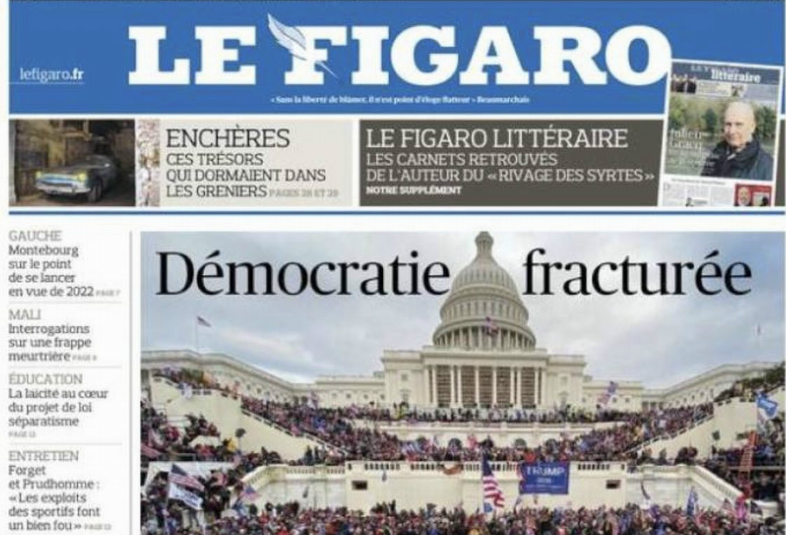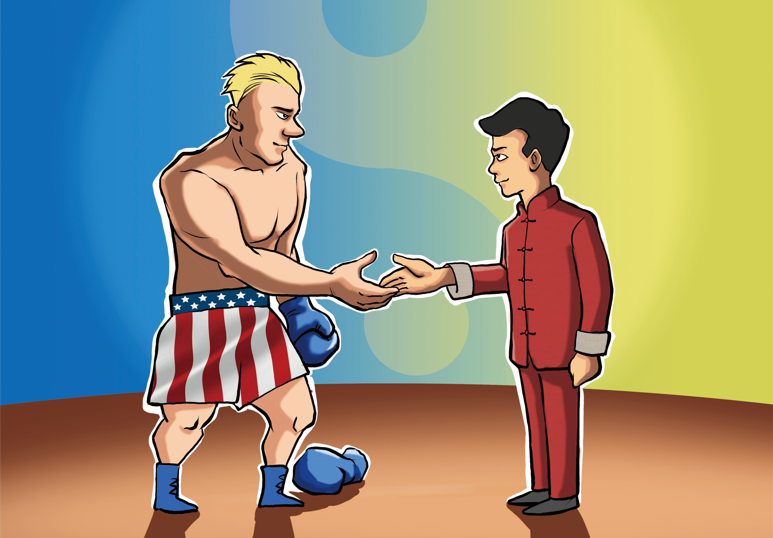Zhang Yun, Professor, School of International Relations, Nanjing University
Dec 09, 2021
Global leadership requires genuine followers, not propaganda. Abstract lectures on democracy don’t much interest the majority of developing countries around the globe. Democracy should aim to solve real problems not serve as pretty wrapping paper for political struggles.
Doug Bandow, Senior Fellow, Cato Institute
Dec 08, 2021
President Joe Biden and Xi Jinping finally talked, but now comes the hard work of resolving differences and managing others to maintain the world’s most important bilateral relationship.
Leonardo Dinic, Expert in Geopolitics and International Business, the Future of Work, and Emerging Technologies
Dec 08, 2021
The White House plans to host a Summit for Democracy in early December - but will the global convention produce tangible actions, or is it a spectacle of diplomacy showcasing Washington’s clout?

Zhao Minghao, Professor, Institute of International Studies at Fudan University, and China Forum Expert
Dec 07, 2021
The United States will be under the microscope this month as the international community takes a hard look at democracy. While the Biden administration is hoping to assert moral authority, America’s troubled outcomes and geopolitical motives will be on full display.
Leonardo Dinic, Expert in Geopolitics and International Business, the Future of Work, and Emerging Technologies
Dec 02, 2021
Many Europeans feel that President Biden’s focus on Asia is once again leaving the EU in the periphery. Europe will likely need to re-evaluate their foreign policy goals to make up for the shift.

Li Yan, Director of President's Office, China Institutes of Contemporary International Relations
Dec 02, 2021
The statement by U.S. President Joe Biden and others that America does not seek to change the Chinese system sounds good on the surface. But is it hiding an iron fist in a velvet glove?
Philip Cunningham, Independent Scholar
Nov 30, 2021
Though Xi Jingping’s absence from Glasgow’s COP26 summit has been roundly criticized, the virtual one-on-one summit between Xi and Joe Biden may have produced more actions of consequence, at a fraction of the cost.
He Wenping, Senior Research Fellow, Charhar Institute and West Asia and Africa Studies Institute of the China Academy of Social Sciences
Nov 30, 2021
The trip, in both its timing and content, was designed compete with China and expand American influence. Senegal, the U.S. Secretary of State’s last stop, happens to be the host country of the upcoming Eighth Forum on China-Africa Cooperation Ministerial Conference. That’s no coincidence.
Zhang Yun, Professor, School of International Relations, Nanjing University
Nov 29, 2021
In their quest for absolute security, the two countries are sowing the seeds of disappointment. Because growth is necessary for economic security, any country that uses security as an excuse for trade protectionism will not achieve its desired competitiveness. This only harms innovation.
Dan Steinbock, Founder, Difference Group
Nov 29, 2021
Overshadowed by U.S.-Sino friction, the 2022 election will be about the future of the Philippines. Old economic elites hope to undermine leading candidates and create a series of U.S.-Philippine military faits accompli before the vote.
Back to Top

- China-US Focus builds trust and understanding between the U.S. and China through open dialogue among thought leaders.
- Our Offerings
- Topics
- Videos
- Podcasts
- Columnists
- Research Reports
- Focus Digest
- Stay Connected
-
Thanks for signing up!
- Get the latest stories from China-US Focus weekly.